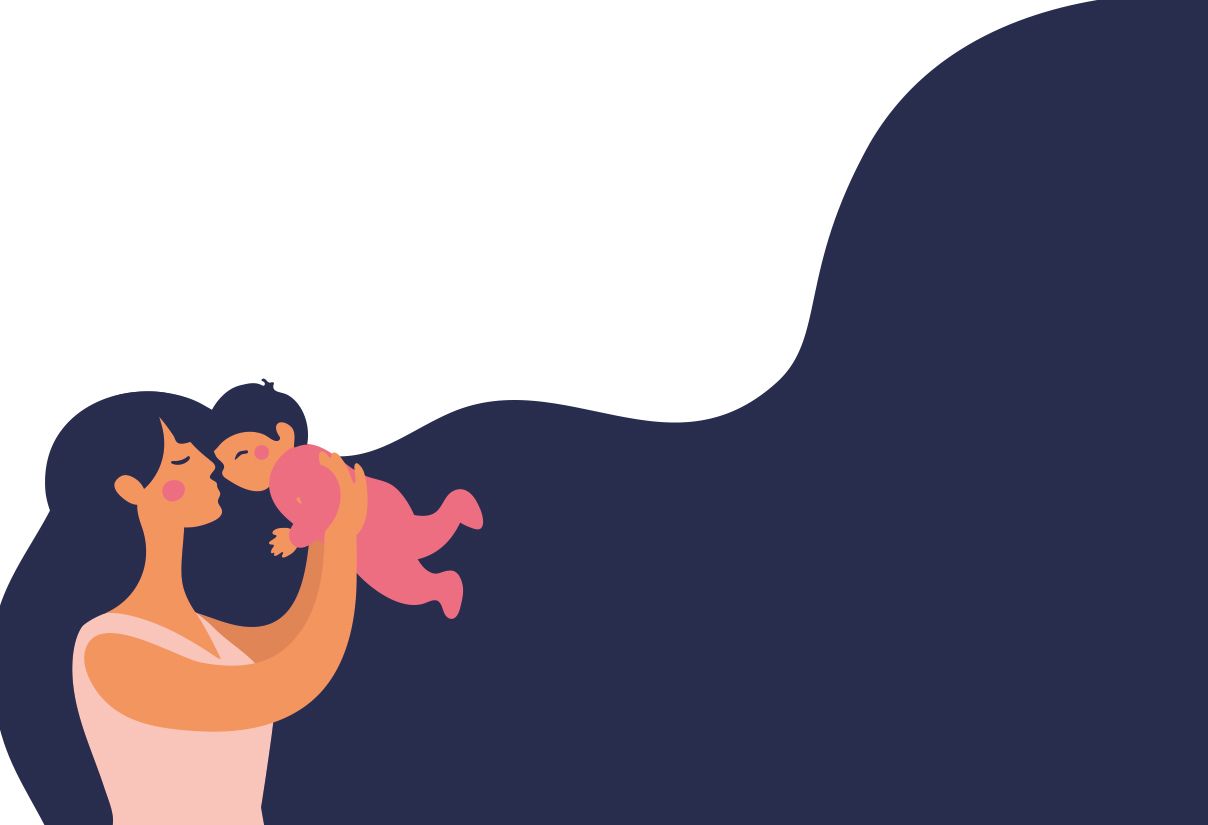FOUNDATIONS FOR LIFE

An ambitious new research project will give children from some of the UK’s most deprived areas the chance of a better start in life. And it all started with a gift.
For many children, disadvantage starts early. Their first 1,000 days, from conception to their second birthday, are critical to their future health, well-being, education and life chances. Poorer environments, nutrition, physical activity and language can make a child more vulnerable to health and developmental risks later in life.
Made possible by a gift from two Leeds alumni, a programme called My First 1,000 Days will work with mothers, babies and families in Leeds to foster positive long-term benefits.
Thanks to donor support, this project will boost the life chances of disadvantaged children and significantly reduce long term costs to the NHS.
Its inspiration comes from a pioneering project in the Netherlands, where group care has been integrated into traditional one-to-one maternity services. It has proved to be a success, improving mums' take-up of healthy behaviours and giving them a network of relationships to benefit both themselves and their children.
Experts from across campus will adapt this transformative work for the UK. They will focus on three key areas of child development – physical activity, language and cognitive development, and food and nutrition. At the same time, they will ensure that all the benefits of group care are open and accessible to disabled families and children. The researchers' long-term vision is to influence UK policy through guidance for caregivers and healthcare professionals, ensuring the best possible start for children. Its benefits will last well beyond childhood, having a ripple effect throughout participants' lives, with positive implications for the health of the nation and the economy.
It is imperative we look at the earliest opportunities to help children and families. This project has the potential to provide vital learning that can be replicated across communities and influence long-term change.
Areas of research
Physical activity
An active lifestyle is of huge benefit to the physical and mental health of pregnant women and new mums. During pregnancy, physical activity reduces the risk of gestational diabetes, hypertension and excessive weight gain. Mums who remain active after giving birth have improved mental wellbeing and a lower risk of depression.
My First 1,000 Days will support mums to enjoy a more active lifestyle through guidance, group exercise classes and mother-child activities in local libraries, leisure centres and swimming pools, including in some of the region’s most deprived areas.
The programme will help mothers and their babies to establish new routines and develop healthy and active habits for life.
Physical activity levels among pregnant women and new mums are at a record low
Food and nutrition
The benefits of healthy eating begin at conception; a pregnant woman’s diet influences the growth, health and even flavour preferences of the developing foetus. If mothers eat few vegetables during pregnancy and while breastfeeding, their babies miss out on essential nutrients, affecting their diet quality.
In many communities micronutrient deficiencies, undernutrition and obesity leave children vulnerable to inequalities of health, language and cognitive development. They begin school at a serious disadvantage.
The programme will give practical support to mothers by giving advice on breastfeeding and diet, as well as running cooking classes, to ensure their child gets a healthy start in life.
Language and cognitive development
A child’s socioeconomic background can present barriers to the development of the language and cognitive skills that are key to positive academic, economic, and health outcomes in later life. Parents facing challenges around education, income, housing, health and childcare have fewer resources to devote to their child’s development.
Working in areas of significant deprivation, the University's research in psychology, education and linguistics is helping nurture children’s language and cognitive development. Building on this, My First 1,000 Days will explore how to support families to build children's crucial skills in speech and language, social communication, and literacy.
Language skills of five-year olds from the lowest income group are an average 19 months behind those from the highest.
Disability and inclusivity
Disabled women can face serious challenges during pregnancy and motherhood – from inaccessible locations and models of care which fail to recognise their needs, to negative attitudes, even among medical staff.
At the same time, families with disabled children face significant financial, emotional and practical pressures. Disabled children are also at greater risk of health inequalities and of being abused or neglected. We urgently need better ways to support disabled parents and their children, and disabled children and their families.
By working with these families, the researchers will ensure that the group care of My First 1,000 Days enhances the health and wellbeing of all children and parents – and alleviates pressures faced by families living with disability.
30% of families with a disabled child are living in poverty.



